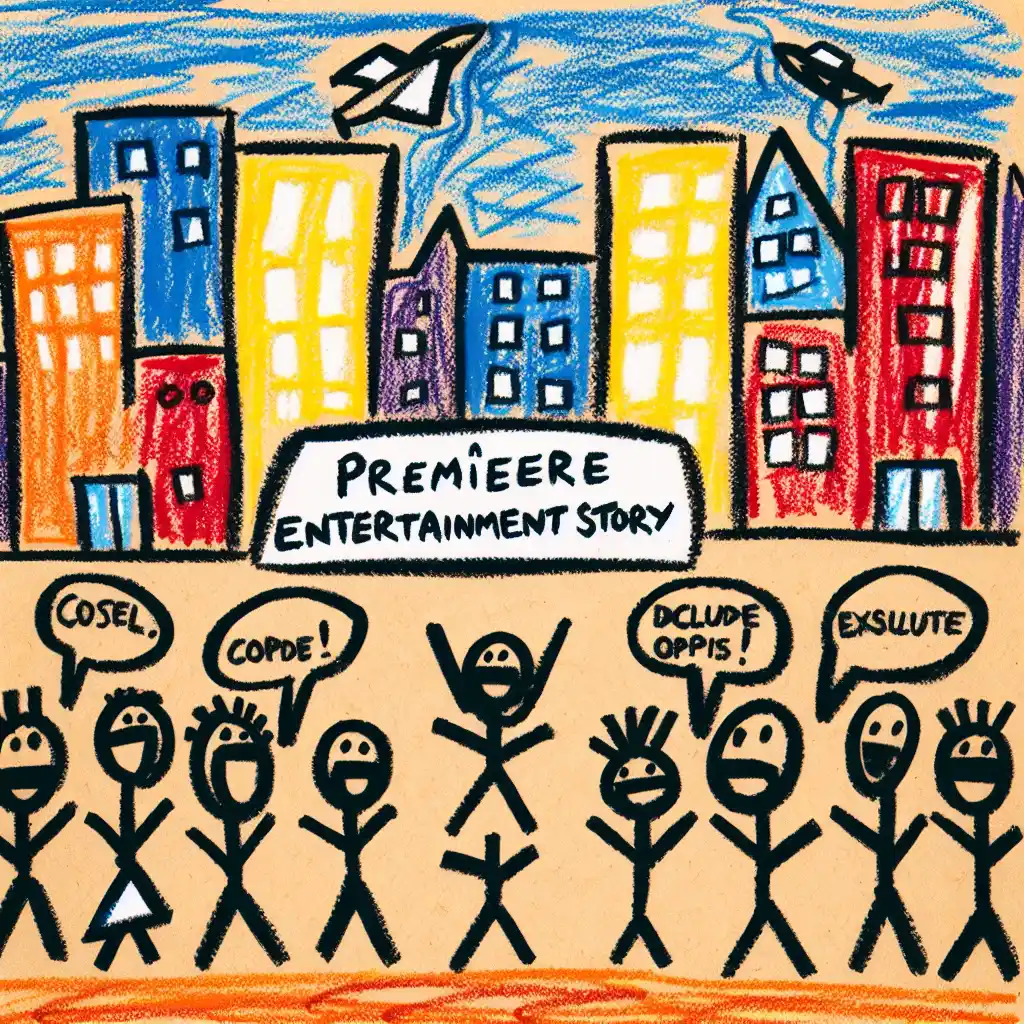Toronto: ‘The Road Between Us’ Premieres, Highlighting the Divisions Among Filmgoers

Explain Like I'm 5
Imagine you have a new movie to watch, but instead of just sitting with popcorn and enjoying it, people start arguing about it. Some are clapping and really happy, while others are upset and even shouting. This is what happened at the premiere of a movie called "The Road Between Us" in Toronto. It's like when you show your friends your favorite toy, and some of them think it's cool, but others don't like it at all. This movie made some people cheer because they liked it, but it also made other people protest because they didn't agree with what it was about.
Explain Like I'm 10
"The Road Between Us" is a movie that talks about some really serious topics, like the country Israel and an important date, October 7. When movies talk about big, real-world issues, people can have very strong feelings about them. At the movie's first big showing in Toronto, the audience had mixed reactions. Some were really excited and happy about the movie, cheering it on. Meanwhile, others didn't like what the movie was showing or saying, so they protested outside the theater.
Why now? Well, sometimes movies try to tell stories about things that are happening in the world right now, or things that happened in the past that still affect people today. This can make some people feel really supported and understood, but it can make others feel angry or sad because they see things differently.
Explain Like I'm 15
"The Road Between Us" is a film directed by Barry Avrich that dives into the complex and highly contentious history and political landscape of Israel, specifically focusing on the events of October 7. Given the sensitive nature of the subject, the movie's premiere in Toronto was met with a gamut of reactions—from applause and cheers from some attendees, signaling support and approval, to protests and visible upset from others, indicating strong disagreement with the film's portrayal or perspective.
This mixed reaction is significant because it reflects broader global debates about Israel and its history, which is a hotbed of political and emotional contention. Films that tackle such topics not only aim to bring certain narratives to the forefront but also challenge viewers to confront uncomfortable or divisive issues, which can lead to public displays of support or dissent like those seen at the premiere.
Looking forward, the reaction to this film at its premiere might spark further discussions or controversies as more people watch it. Critics and supporters alike will likely continue to analyze its message, accuracy, and impact on public perception and discourse. This incident at the Toronto premiere could be a precursor to how the film will be received globally, highlighting the power of cinema in shaping and reflecting societal debates.
Want to read the original story?
View Original Source